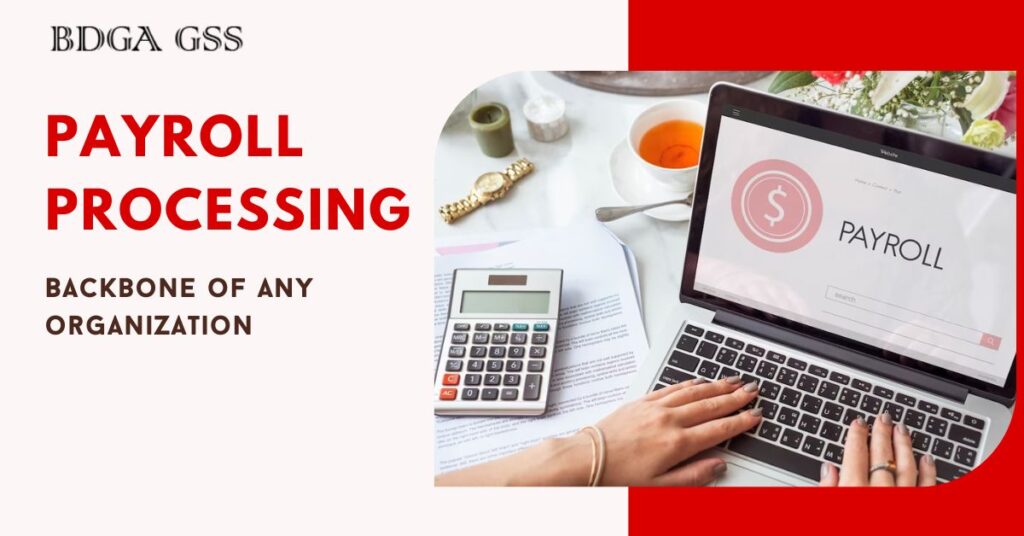
Payroll processing, often considered the backbone of any organization, is a vital function that ensures employees are paid accurately and on time. It encompasses various tasks, from calculating wages and deductions to generating payslips and tax reporting. In this blog, we’ll delve into the intricacies of payroll processing, its importance, and how modern technology is revolutionizing this essential aspect of business operations.
Payroll processing goes beyond mere monetary transactions; it’s a reflection of an organization’s commitment to its employees’ well-being. Timely and accurate payroll not only boosts employee morale and job satisfaction but also ensures legal compliance and avoids potential legal liabilities. It’s a process that requires precision, attention to detail, and adherence to ever-evolving tax regulations.


One of the primary functions of payroll processing is the calculation of wages. This involves determining an employee’s gross pay based on factors like hours worked, overtime, bonuses, and commissions. Additionally, deductions such as taxes, insurance premiums, retirement contributions, and other withholdings are subtracted to arrive at the net pay.
Payroll processing is subject to a myriad of federal, state, and local regulations. Accurate adherence to these laws is crucial to prevent penalties and legal issues. Tax withholding rates, employment laws, and retirement plan contributions are some of the areas that require careful monitoring and compliance.
Employees rely on payslips to understand their earnings, deductions, and other financial details. The payroll department is responsible for generating and distributing these payslips, providing transparency, and fostering trust between employers and employees.
Payroll processing is intricately linked to tax reporting. Employers are required to withhold and remit various taxes on behalf of employees, including income tax, Social Security, and Medicare. Ensuring accurate tax reporting is not only essential for employees’ financial stability but also for maintaining a good standing with tax authorities.
Accurate record-keeping is a cornerstone of effective payroll processing. Organizations must maintain records of payroll data, tax filings, and other related documents. These records not only serve as historical references but also facilitate audits and legal compliance.

Payroll processing is an indispensable function that impacts both employees and businesses. Its accuracy and efficiency contribute to employee satisfaction, legal compliance, and overall business reputation. As technology continues to reshape the business landscape, embracing modern payroll processing solutions is not just a choice but a necessity to streamline operations and ensure a harmonious workplace. By leveraging automation and staying vigilant about regulatory changes, organizations can transform payroll processing from a mundane task to a strategic asset that supports growth and success.
Receive complimentary consultation for payroll management, accounting, and bookkeeping services.
+91 9711929394
Kanika.garg@bdgagss.com
